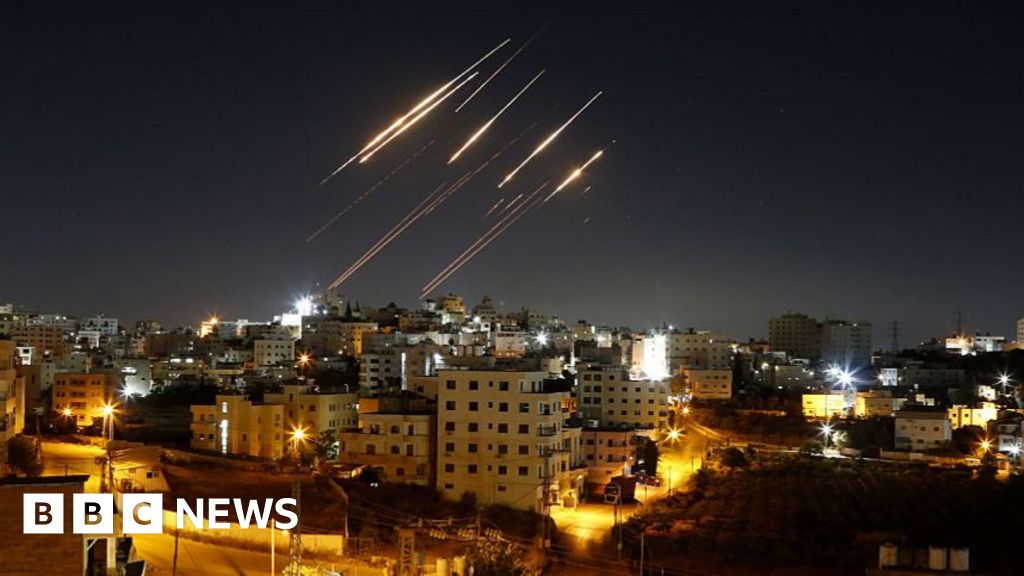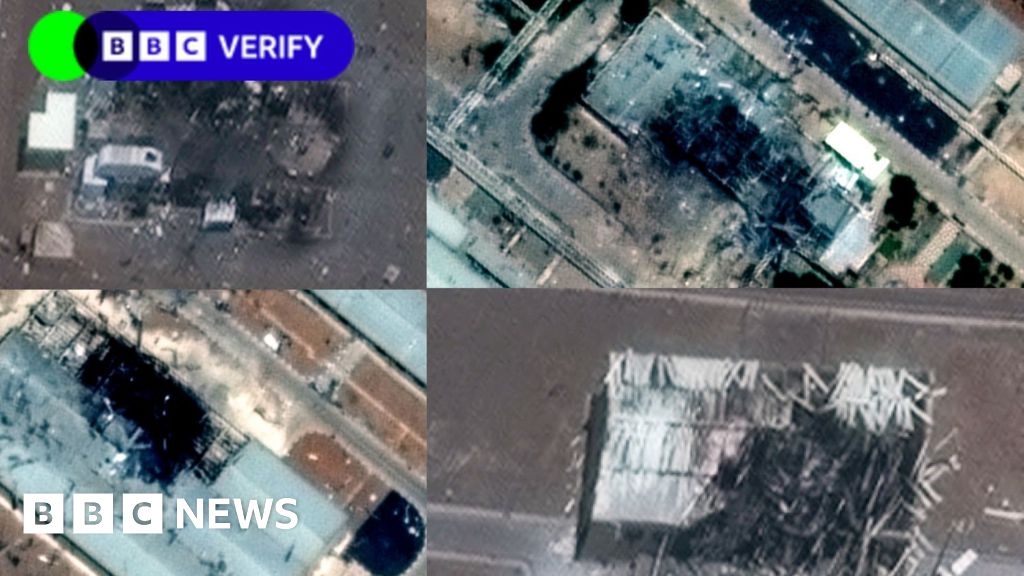ARTICLE AD BOX
Image source, Reuters
Image caption,Mr Putin described Western economic sanctions against his country as illegal
Vladimir Putin has ordered Russia's military to put its deterrence forces, which include nuclear weapons, on "special alert".
He told defence chiefs it was because of "aggressive statements" by the West, amid widespread condemnation of his invasion of Ukraine.
The announcement does not mean Russia intends to use the weapons.
The US immediately condemned his decision calling it an "unacceptable escalation".
Last week, Mr Putin had warned that "whoever tries to hinder us" in Ukraine would see consequences "you have never seen in your history".
Those words were widely interpreted as signalling a threat to use nuclear weapons if the West stood in his way.
That warning became sharper on Sunday when he ordered the Russian defence minister and the chief of the military's general staff to put the nuclear deterrent forces on a "special regime of combat duty".
After Mr Putin's announcement, the EU announced an unprecedented new raft of sanctions and actions against Russia, including:
- The financing of weapons for Ukraine
- A total ban on Russian planes using EU airspace
- Barring Kremlin-run media outlets Sputnik and Russia Today from EU territory.
These measures come on top of other sanctions already imposed by Western nations, which include asset freezes on major banks and wealthy individuals, including Mr Putin himself.
The US ambassador to the United Nations said Mr Putin's nuclear deterrent order showed he was escalating the Ukraine conflict in an unacceptable manner.
The White House said Russia had not been under threat from Nato at any point, while Nato Secretary General Jens Stoltenberg described Mr Putin's comments as "dangerous rhetoric".
The very public shift to high alert status is a way for Moscow to send a warning.
Moving to alert status likely makes it easier to launch weapons more quickly. But it does not mean there is a current intent to use them.
Russia has the largest stockpile of nuclear weapons in the world but also knows that Nato also has enough to destroy Russia if they were used.
But Vladimir Putin's aim is likely to try and deter Nato support for Ukraine by creating fears over how far he is willing to go - and creating ambiguity over what kind of support for Ukraine he would consider to be too much.
Russia attacks Ukraine: More coverage
Meanwhile, the Ukrainian presidency says it has agreed to hold negotiations with Russia at a location on the border between Ukraine and Belarus.
President Volodymyr Zelensky said that in a conversation with Belarusian leader Alexander Lukashenko, the Ukrainian side had agreed to meet the Russians without preconditions on the Ukrainian-Belarusian border, near the Pripyat River.
Mr Zelensky said Mr Lukashenko had taken responsibility for ensuring that all planes, helicopters and missiles stationed on Belarusian territory remained on the ground during the Ukrainian delegation's travel, talks and return.
Neither Russia nor Belarus have issued any statements about potential talks.
Russia's defence ministry has now acknowledged that its military personnel have been killed and wounded in Ukraine, though it claims the losses are much less than those of Ukraine.
The UN said that by Saturday, at least 134 Ukrainian military had been killed. Ukraine, meanwhile, says there have been 4,300 casualties among Russian servicemen, but even Ukrainian officials say those figures are not clear.
Ukraine's human rights commissioner says 210 civilians have been killed.
Among the dead are children - one when a children's hospital was shelled in Kyiv and one in a Russian attack on a kindergarten that claimed six lives near the northern border at Okhtyrka.
Nine civilians have been killed in Kyiv, while 10 ethnic Greek Ukrainians died in air strikes on villages in the south-east, Greek officials say.
So far, the UN has recorded 64 confirmed civilian deaths and many more wounded, and it expects the true number to be much higher.
In other developments, as the Russian invasion entered its fourth day:
What questions do you have about the Russian invasion of Ukraine?
In some cases your question will be published, displaying your name, age and location as you provide it, unless you state otherwise. Your contact details will never be published. Please ensure you have read our terms & conditions and privacy policy.
Use this form to ask your question:
If you are reading this page and can't see the form you will need to visit the mobile version of the BBC website to submit your question or send them via email to YourQuestions@bbc.co.uk. Please include your name, age and location with any question you send in.

 3 years ago
64
3 years ago
64








 English (US) ·
English (US) ·